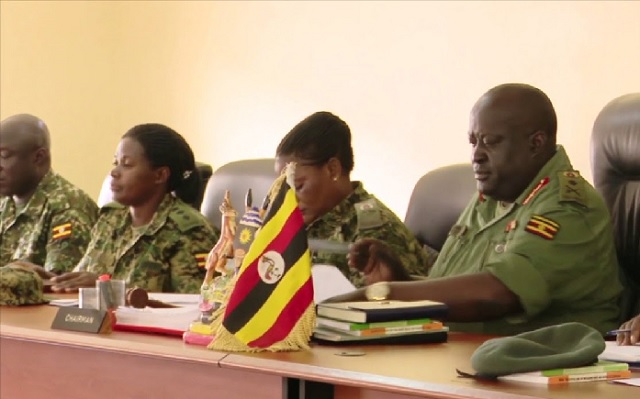KAMPALA — The Constitutional Court has ruled that Military General Court Martial has no powers to try civilians and ordered an immidiate transfer of their files to civil courts.
In a majority ruling, four out of five judges on Thursday ruled that the General Court Martial’s jurisdiction is only limited to trying service offences specified under the UPDF act, only in respect to persons subject to military law.
“All those persons, not subjected to military law and are currently being tried before any military court, we order that their files be transferred to civil courts under the direction of Director Public Prosecutions within 14 days from that date hereof,” the judges ruled.
They added:” All those not subjected to military law who are currently serving sentences imposed by the authority of military Courts contrary to the constitution as set out in tbis judgment, should have their case files to the High Court criminal division for retrial or be dealt with as the Court Martial may direct within 14 days of this judgment”.
Judges said the judgement doesn’t exonerate anybody from criminal responsibility and said those affected will remain in lawful custody or bail as fresh charges may be brought by the DPP.
The judges also nullified several sections in the UPDF act including section 119 (1), Section 119 (h) and section 179 (1)(a) saying they are inconsistent with Article 28(1) of the Constitution of Uganda.
The judges agreed that cases of unlawful possession of firearms shouldn’t be tried in the Court Martial but rather in the civilian courts.
The ruling nullifies the trial of the terrorism and illegal possession of firearms cases including that of a number of National Unity Platform supports who have been facing in the General Court Martial.
The ruling follows a petition by former Nakawa Division Member of Parliament and FDC stalwart Michael Kabaziguruka, to the Constitutional Court challenging the powers of the Court Martial, Jurisdiction of the Court Martial and the consistency of the Court Martial among others.
Since 2002, military courts in Uganda have prosecuted hundreds of civilians for offenses under the criminal code, such as murder and armed robbery.
In 2006, Constitutional Court ruled that military prosecutions of civilians were unlawful. This ruling, upheld on appeal by the Supreme Court in January 2009, was consistent with international law, which unambiguously holds that military tribunals are not competent courts to try civilians accused of peacetime criminal offenses.
Despite this, military courts have continued to prosecute civilians.
President Yoweri Museveni has defended using military courts for civilians on the ground that civilian courts were failing to secure convictions of those accused of violent crimes.
But to the extent this was true, human rights defenders says, it reflected inadequate or mismanaged police resources, resulting in poor quality police investigations.
They also reason that problems with the civilian criminal justice system can never be a justification for violating the fundamental rights of the accused.








